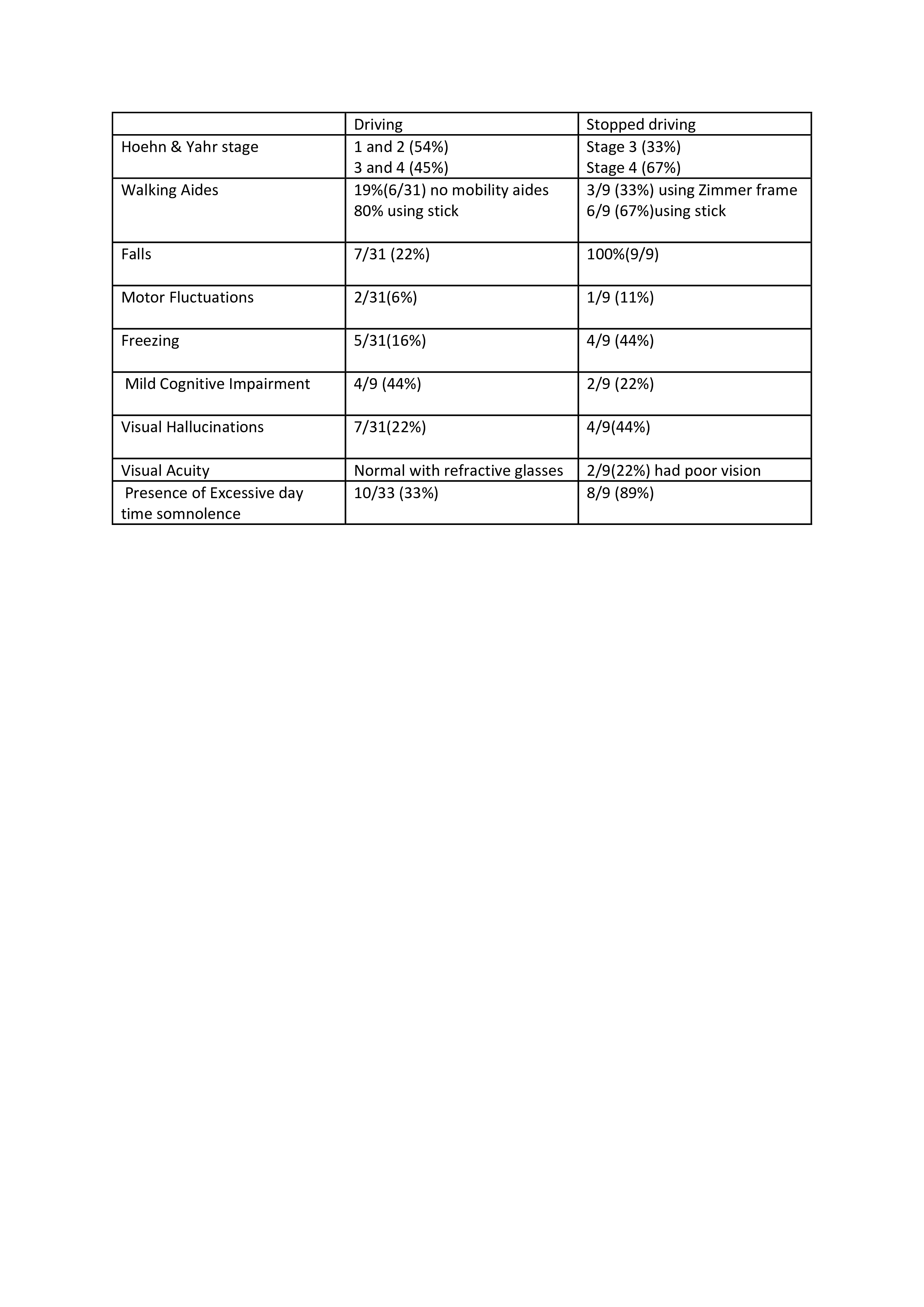Category: Parkinsonism, Others
Objective: To review characteristics of older Parkinson’s patients undergoing driving assessments presenting to Movements disorder’s clinic at Royal Berkshire Hospital, Reading,UK.
Background: Parkinson’s leads to motor, cognitive, visual and mood impairments which can affect fitness to drive. Variability in response to timing of medications and their side effects can impair driving ability even in early stages of disease(1). There is lack of clinical guidance to predict driving performance in Parkinson’s patients which remains an area of unmeet need.
Method: Patients presenting to Parkinson’s clinic from year 2021 to 2023 who had undergone driving assessments by Driving and Vehicle Licensing Agency (DVLA), UK were reviewed. Data was collected through Electronic Patient Record.
Results: 40 patients (32male) of average age 80 years and average duration of diagnosis of 3 years were reviewed.31/40(78%) continued to drive after assessments by DVLA and 9/40(22%) voluntarily stopped driving 2 years after driving assessment. Table 1 shows a comparison of patient characteristics.The average Levo Dopa dose in patients who continued to drive was 250 mg in comparison to 400 mg in those who stopped driving.
Table 2 shows a breakdown of dopaminergic medications in the two groups.
Conclusion: Majority of patients were deemed fit to drive by DVLA and continued driving. Patients who continued to drive have done so either on Levo dopa alone or its combination with MAOi. Falls, freezing, use of more specialized walking aides, visual hallucinations, poor vision and excessive day time somnolence were predominant in people who opted to stop driving suggesting worsening balance as expected with disease progression.
Table 1
Table 2
References: 1-https://doi.org/10.1212%2FWNL.0b013e3182749e95
To cite this abstract in AMA style:
M. Khwaja, G. Pun, T. Nanayakkara, R. Miah, A. Chatterjee, N. Butt, T. Zubair. Behind the wheel with Parkinson’s-Older patients’ review [abstract]. Mov Disord. 2024; 39 (suppl 1). https://www.mdsabstracts.org/abstract/behind-the-wheel-with-parkinsons-older-patients-review/. Accessed February 25, 2026.« Back to 2024 International Congress
MDS Abstracts - https://www.mdsabstracts.org/abstract/behind-the-wheel-with-parkinsons-older-patients-review/


